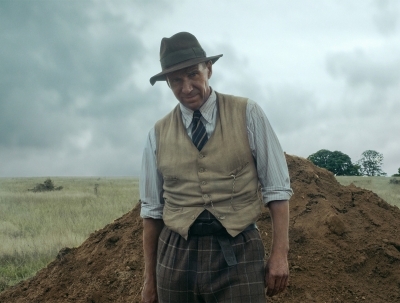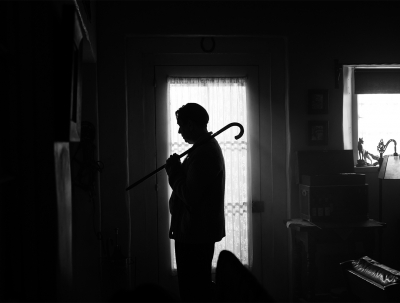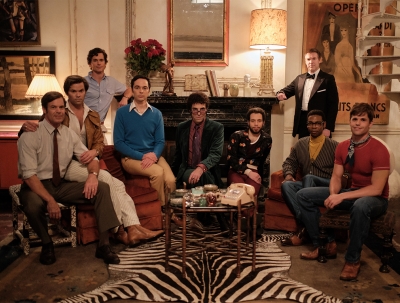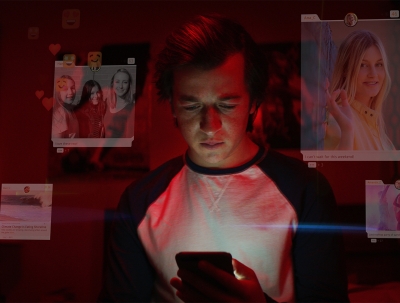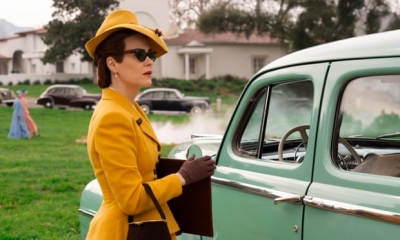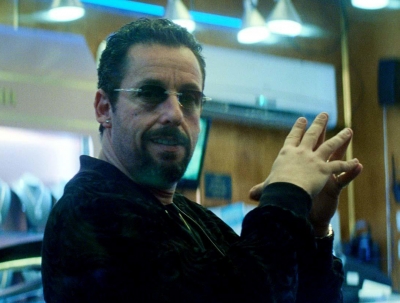Netflix
It opens with a dream. A dream that is, as dreams often are, awash in surrealism, disorientation, longing, desire. Dreams, both waking and sleeping, are integral to Shtisel’s composition, an Israeli television saga that speaks of the lives of the Shtisels, a family living in the midst of a Haredi (literally ‘those who tremble’, otherwise known as Ultra-Orthodox) community. The series is a textured chiaroscuro portrait of human experience that leaks pathos and laughter in equal skilled measure.
... (read more)Though one of the most sparing titles in recent film history, The Dig announces what proves to be one of the richest cinema experiences for some time. Based on true events and on John Preston’s 2007 novel of the same name, Simon Stone’s film creates a subtly textured account of a historical phenomenon as well as a moving reflection on the lives that are transformed by this.
... (read more)Despite nearly eighty years having passed since its release, Orson Welles’s Citizen Kane (1941) is never far from the centre of cultural discourse. Aside from the fact that it tops ‘greatest movie’ lists with monotonous regularity, Citizen Kane often comes into view in somewhat quirky ways as it relates to today’s world. For example, there was Donald Trump’s much-publicised and much-derided misunderstanding of the film’s message, and few years ago there a the strange report of Welles having been posthumously ‘forgiven’ by the family of William Randolph Hearst, the wealthy press baron who inspired the character of Charles Foster Kane.
... (read more)It is hard today to recall the full extent of the furore that surrounded the first productions of Mart Crowley’s play The Boys in the Band. First produced off Broadway in April 1968, a year before the riots at the Stonewall Inn that sparked a new militant gay politics, it quickly became a hit, and was staged in Sydney later that year, where it ran for seven months.
... (read more)If you watch one film about technology this year, make it this one. The Social Dilemma (Netflix) features almost every tech insider turned outsider. There’s Tristan Harris, Google’s former chief design ethicist who famously dissented over the company’s attention/addiction business model. There’s Justin Rosenstein, the inventor of the Facebook ‘like’ button, who now regrets his invention. There’s Guillaume Chaslot, inventor of the YouTube recommendations system, who now regrets his invention. There’s Jaron Lanier, founder of virtual reality, who now wants people to delete their social media accounts. There’s Shoshana Zuboff, author of last year’s The Age of Surveillance Capitalism, who blew the lid on the whole game. And that’s just in the first few minutes.
... (read more)How, precisely, does a character unmoor itself from its source material? And how concerned should we be to track its progress – or should that be retrace its steps? These questions bugged me as I admittedly devoured Ryan Murphy’s new Netflix series, Ratched. Ostensibly a prequel, it re-contextualises and re-packages the unforgettable villain Nurse Ratched from Ken Kesey’s novel One Flew Over the Cuckoo’s Nest (1962) for entirely different aims, so much so that the original feels hopelessly far away. In fact, there’s little evidence of Kesey at all.
... (read more)There is something fundamentally irritating about Adam Sandler. Whether it’s his two-dimensional characters, mousey face, or nasally voice, he reminds you of that obnoxious guy whose loud voice dominates a party. He is the poster boy of puerile comedy, the SNL-alum visionary of some of the most blasphemously bad films of all time. The sheer offensiveness of his work is unignorable: the homophobia of I Now Pronounce You Chuck and Larry (2007), the racism of Don’t Mess with the Zohan (2008), the sexism of … pretty much all of it. Each film generally comprises a character arc of Sandler urinating freely, shouting petulantly, fucking wildly, and then maybe punching someone: The end.
... (read more)

